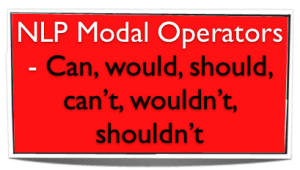The words that we use are a really good indicator to what is going on inside.
From a young age we begin to frame our experiences with words. That is, we learn to associate objects, people first of all with words, “Mummy” and “Daddy” maybe being the first words that we learn. When we see Mummy, we associate who we see with the word Mummy. When we see a chair, we point at it and we say “chair.”
We begin to learn to construct sentences, “I don’t want to,” and “I’m hungry” are quite popular sentences that we may have used as children. This is communication at a basic level. We can communicate that we are feeling hungry on the inside by using the words “I’m hungry” and we know that we have a good chance of getting fed.
Conscious communication takes place when we decide what we want to achieve with our communication, and then we use words that we hope will achieve the desired result for us. EG The thought process goes. “I feel hungry. I know I need to tell someone”. “I’m hungry” does the job and food appears on a spoon. Soon we do not need to consciously make this thought process. We know that it works, so we can start using the phrase unconsciously, to save us thinking about it.
As we develop, we associate words unconsciously with all sorts of experiences. We may have a great time walking in the park one day, and forever more we may label that experience as “fantastic.” Every time we recollect that moment of walking in the park, we may also recollect the word “fantastic” alongside it. If someone were to suggest walking in the park again, we may well think “That would be fantastic” and go ahead and enjoy the experience once again.
We associate words and phrases with everything in life and we often recall these words and use them again unconsciously. As we make decisions in our life about what we can and can’t do, we make these decisions and we associate “can” and “can’t” next to our decisions. For example if you try to write left handed, then you may not find it particularly easy. You may then decide that you “can’t” write left-handed. The next time someone hands you a pen, you evaluate which hand to use and you remember that you “can’t” write left-handed and so that option is ruled out.

If you give a presentation at a meeting say, and it doesn’t go as planned, then you may decide that you “can’t do public speaking”. Next time someone suggests standing up in front of other people and talking, you are going to recall the last time that you did it, and you are going to remember (probably without realising that this is happening) associating “I can’t do public speaking” with that experience. You may well say to the other person “I can’t do public speaking.”
This is how rules are formed in your life. These rules are set in stone for you until you bring them into consciousness and change them.
One way of identifying your own and other peoples rules are to listen to the language that is used.
Modal Operator is an NLP term that is used to identify specific words that enable us to identify our rules.
There are six types of Modal Operators:
- Modal Operators of Necessity. Eg Should, must, ought to, have to, supposed to
- Modal Operators of Negative Necessity. Eg Shouldn’t, mustn’t etc
- Modal Operators of Probability. Eg Could, may, might, had better
- Modal Operators of Improbability. Eg Couldn’t, may not, might not
- Modal Operators of Possibility. Eg Able to, can, try, will
- Modal Operators of Impossibility. Eg Am not, can’t, try not, won’t
You can spot these words in the language that you use and the language that other people use in order to identify rules that they may have formed for their lives. These rules may or may not be true. You can seriously empower yourself and others if you can notice and make conscious rules that do not support you.
You should just pay attention to the way that you construct your sentences and you might realise that even by doing that you begin to challenge your rules.
You ought to be able to pick them out now and you could listen out for the use of them in other people’s language in order to see how it could be disempowering for them to form rules without testing once again that they can make a more empowering decision.
